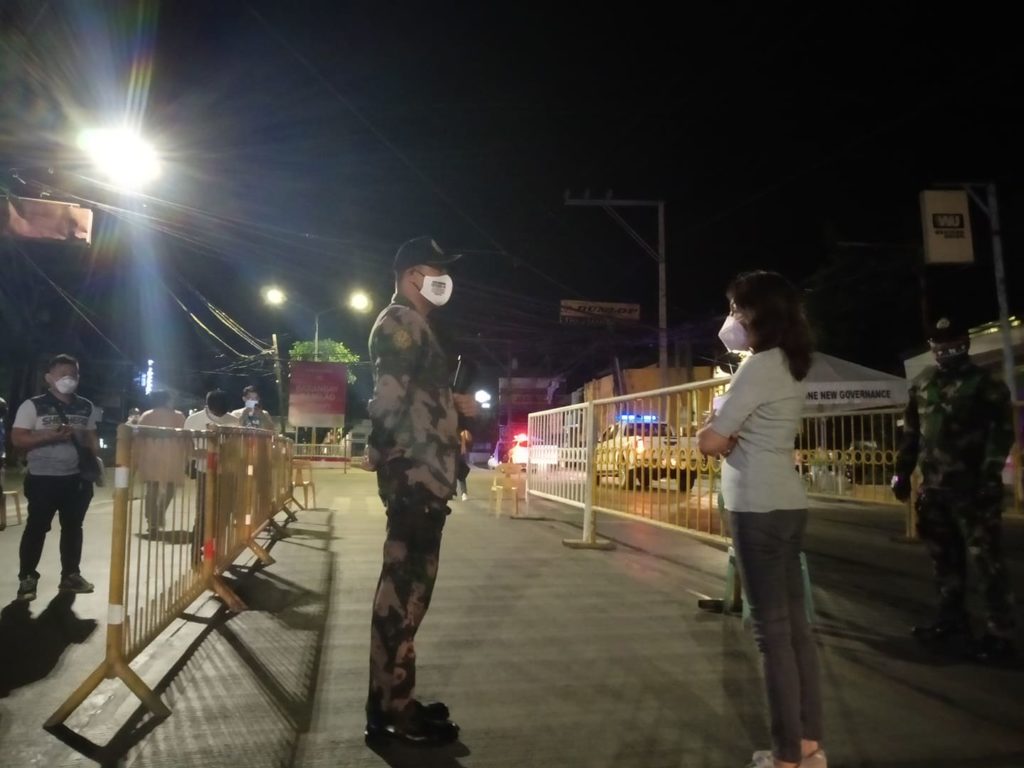CEBU CITY, Philippines — Employees of fast-food chains, groceries and pharmacies and funeral services are now included in the exemption for border entry restriction from Cebu City to Cebu province.
This is after Governor Gwendolyn Garcia issued Executive Order no. 5-O-1, which expands the coverage of the border entry restriction exemptions to now include these persons.
In Garcia’s Executive Order no. 5-O, the province has closed its borders for persons from Cebu City in view of the number of Coronavirus Disease (COVID-19) cases in it.
The only exemptions in the governor’s first EO are officials and employees of the provincial government; justices of the Supreme Court, Court of Appeals, Court of Tax Appeals, Sandiganbayan, Ombudsman and Deputy Ombudsman; judges and skeletal staff of the lower courts and the prosecutors; DOH officials and employees and skeletal force of other government agencies; healthcare and admin workers of hospitals; media workers; field personnel of utility and energy services; and employees of banks and money transfer firms.
EO no. 5-O-1, which Garcia signed on Tuesday afternoon, March 31, 2020, says adding these persons in the list of exemptions stemmed from the “need for the fluidity of operations in essential businesses such as groceries, supermarkets, pharmacies, drugstores, restaurants, and fast-food chains.”
Workers in the Business Process Outsourcing (BPO) companies in Cebu City, however, remain to be covered by the entry restriction.
This means that if a BPO worker who lives in a city or town under the province of Cebu enters Cebu City, he will no longer be allowed to return to the province while the border entry restriction is in effect.
Garcia, in a press conference, earlier explained that so many exemptions in the border entry restriction may defeat the purpose of containing the spread of COVID-19.
Garcia said that when the thousands of BPO workers and other employees in the city are allowed to return to their homes in the province, they may be potential carriers which may in turn, facilitate transmission in their homes.
The governor earlier called on business owners who are still allowed to continue to operate amidst the enhanced community quarantine to provide accommodation and transportation for their employees in the city as their contribution to the efforts to fight the spread of COVID-19.
‘Reciprocity’ agreement
Garcia also said that she is still hoping to “clear up” the misunderstanding on the border entry restriction on the part of Mandaue City.
Mandaue City Mayor Jonas Cortes on Monday, March 30, announced that the highly urbanized cities of Cebu, Lapu-Lapu, and Mandaue have approved a “reciprocity” agreement which allows the entry and exit of persons that they deemed as essential in each other’s jurisdiction.
Read: Lapu, Mandaue, Cebu City enter into ‘reciprocity’ agreement to allow entry of ‘exempted’ persons
The exempted persons in the three cities’ ECQ protocols differ from those that Garcia limits in her EO no. 5-O.
“First of all, I hope we can still clear up this misunderstanding if they want to, in the end, work together for the greater good,” Garcia said.
While the three HUCs have invoked the resolution of the Interagency Task Force (IATF) on the management of emerging infectious disease in their reciprocity agreement, Garcia said that Cebu should tailor-fit its protocols to the situation here.
She also said that the discussion on entry restriction was brought up and agreed upon by the mayors during their meeting last Monday, March 30, before the setting out of the protocols of the ECQ.
“Kung mag-lockdown gani ta, lockdown. Kato lang necessary kaayo sa tanan. Kung daghan kaayo tag exemptions, di na lang ta mag-lockdown. Mag-ampo na lang ta nga di ni mobuto,” Garcia said.
(If we go on lockdown, then it is a lockdown. Only those that are really necessary shall be exempted. If we exempt too many, then better yet, let us not go on with the lockdown. Let us just pray that this won’t blow up.) /rcg
